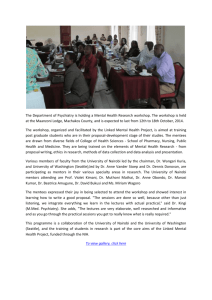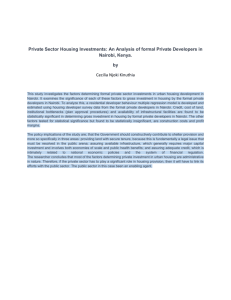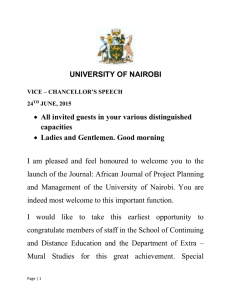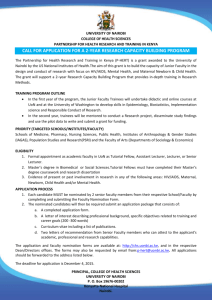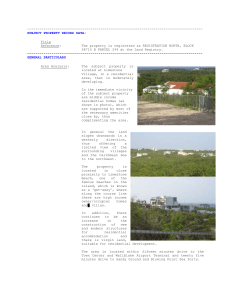Ngau Peter Musyoki Abstract
advertisement
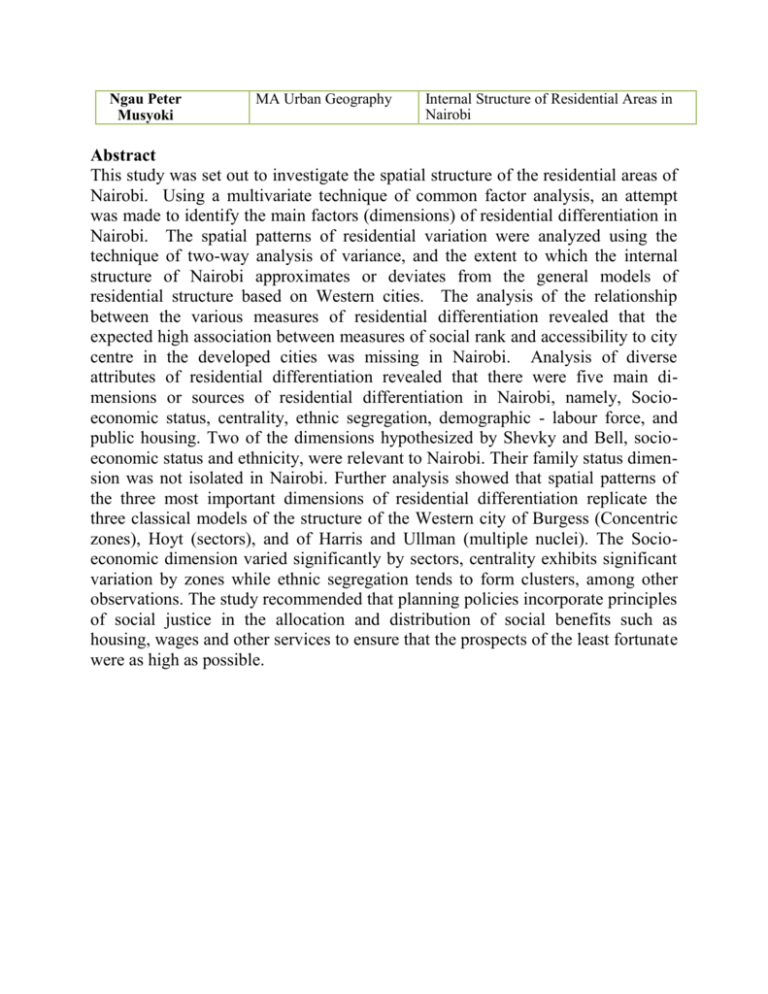
Ngau Peter Musyoki MA Urban Geography Internal Structure of Residential Areas in Nairobi Abstract This study was set out to investigate the spatial structure of the residential areas of Nairobi. Using a multivariate technique of common factor analysis, an attempt was made to identify the main factors (dimensions) of residential differentiation in Nairobi. The spatial patterns of residential variation were analyzed using the technique of two-way analysis of variance, and the extent to which the internal structure of Nairobi approximates or deviates from the general models of residential structure based on Western cities. The analysis of the relationship between the various measures of residential differentiation revealed that the expected high association between measures of social rank and accessibility to city centre in the developed cities was missing in Nairobi. Analysis of diverse attributes of residential differentiation revealed that there were five main dimensions or sources of residential differentiation in Nairobi, namely, Socioeconomic status, centrality, ethnic segregation, demographic - labour force, and public housing. Two of the dimensions hypothesized by Shevky and Bell, socioeconomic status and ethnicity, were relevant to Nairobi. Their family status dimension was not isolated in Nairobi. Further analysis showed that spatial patterns of the three most important dimensions of residential differentiation replicate the three classical models of the structure of the Western city of Burgess (Concentric zones), Hoyt (sectors), and of Harris and Ullman (multiple nuclei). The Socioeconomic dimension varied significantly by sectors, centrality exhibits significant variation by zones while ethnic segregation tends to form clusters, among other observations. The study recommended that planning policies incorporate principles of social justice in the allocation and distribution of social benefits such as housing, wages and other services to ensure that the prospects of the least fortunate were as high as possible.

